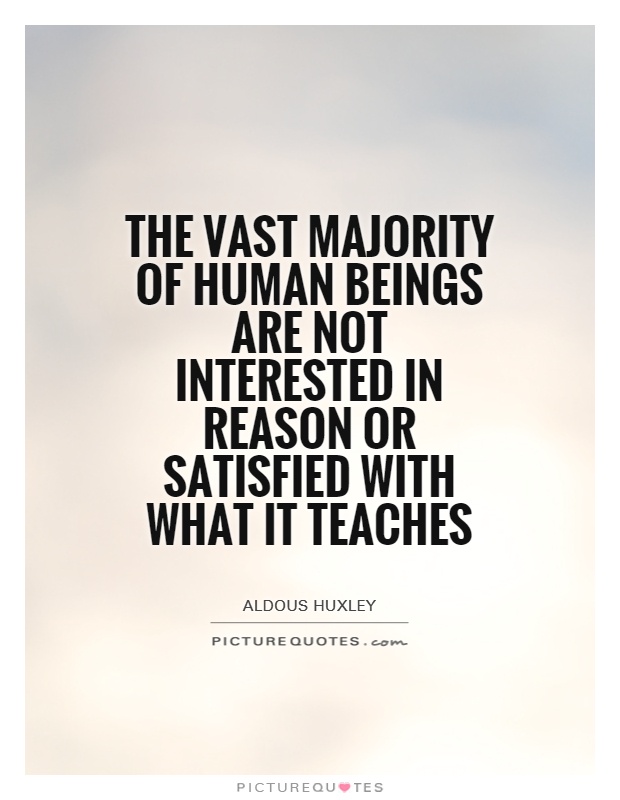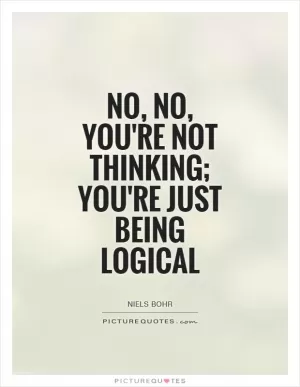The vast majority of human beings are not interested in reason or satisfied with what it teaches

Logic QuotesVast Majority QuotesHuman Being QuotesReason QuotesNot Interested QuotesHuman Beings Quotes
The vast majority of human beings are not interested in reason or satisfied with what it teaches
Aldous Huxley, a renowned English writer and philosopher, was known for his keen observations on human nature and society. One of his most famous quotes, "The vast majority of human beings are not interested in reason or satisfied with what it teaches," speaks volumes about the state of humanity and its relationship with rational thought.Huxley believed that most people are not inclined to engage in critical thinking or logical reasoning. Instead, they are driven by emotions, instincts, and societal influences that often cloud their judgment and prevent them from seeing the truth. In his dystopian novel "Brave New World," Huxley explores a world where people are conditioned to conform to a rigid social order and are discouraged from questioning authority or seeking knowledge. This portrayal of a society devoid of reason and individuality serves as a cautionary tale about the dangers of blind obedience and intellectual complacency.
Huxley's assertion that the majority of people are not interested in reason can be seen in the way society often values conformity over independent thinking. From a young age, individuals are taught to follow rules, adhere to social norms, and accept authority without question. This indoctrination can stifle creativity, curiosity, and critical thinking skills, leading to a population that is easily manipulated and controlled by those in power.
Furthermore, Huxley's observation that people are not satisfied with what reason teaches suggests that many individuals are resistant to challenging their beliefs or questioning their assumptions. Instead of seeking out new information and perspectives, they prefer to cling to their preconceived notions and biases, even in the face of contradictory evidence. This intellectual stagnation can lead to closed-mindedness, ignorance, and a lack of empathy for others who hold different viewpoints.












 Friendship Quotes
Friendship Quotes Love Quotes
Love Quotes Life Quotes
Life Quotes Funny Quotes
Funny Quotes Motivational Quotes
Motivational Quotes Inspirational Quotes
Inspirational Quotes